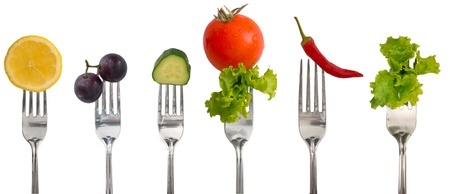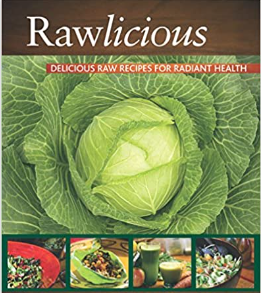Raw Food Diet

Should You Join The Raw Food Diet Revolution?
A Raw Food Diet is an approach to nutrition that focuses on consuming uncooked and unprocessed plant-based foods such as fruits, vegetables, nuts and seeds.
Eating raw provides a wealth of health benefits, including improved digestive health, greater energy levels, increased immunity, weight loss and clearer skin.
The core principle behind this diet is to retain the maximum amount of nutrients from food by avoiding methods such as boiling or cooking that destroy enzymes and vitamins. Raw food diets have become increasingly popular in recent years due to their potential for helping optimize physical and mental wellbeing.
To really benefit from a raw food diet your food intake should involve eating between half and three quarters of your food raw and simply prepared.
Considered the “kitchen bible” by healthy foodies around the world, Rawlicious is an accessible how-to guide and cookbook for anyone interested in a raw food diet. Helpful chapters include information on the basics of sprouting, juicing, nut milks, and raw nutrition.
Raw Radiance
Raw foodists typically believe that the greater the percentage of raw food in the diet, the greater the health benefits. They also claim that raw food can prevent and cure some sickness and many chronic diseases. This kind of diet emphasises eating fresh fruits and vegetables, as well as wholegrain cereals, sprouts, nuts, seeds and legumes.
A raw food diet is said to make you feel fantastic and restore youthfulness. It may also help to protect against degenerative diseases such as arthritis and heart disease.
Some raw foodists believe cooked food is toxic because cooking the food converts certain particles into harmful chemicals. It's also thought that cooked food is less digestible than raw food because cooking destroys the enzymes contained in food. These enzymes are said to help support the body's own enzyme system and so improve digestion.
"Changing to Raw" Challenges
One of the biggest challenges of transitioning to a raw food diet is developing and maintaining healthy eating habits. It can be difficult to break long-held dietary patterns and adopt new ones, particularly when it comes to eating unfamiliar foods. Additionally, preparing raw dishes often requires considerable time and effort which may not be feasible for those with busy lifestyles. For some people, following a raw food diet can also present a significant financial burden due to the cost of fresh produce. Finally, some individuals may struggle to find retailers that sell the ingredients necessary for a successful raw food diet.
The vitamins and minerals that are vital for good health are highest in fresh, untreated food (organic is best). Fresh fruit and vegetables also contain a wealth of phyto-nutrients which are powerful antioxidants and enhance the body's immune system.

" Make It Fresh and Raw To Restore Energy, Health & Vitality. Boost Your Immunity & Protect Your Body Against Disease"
Easy Steps To Include Raw Food In Your Diet
Increasing raw food in your diet can be made easy. Start gradually so you don't have to radically disrupt your eating habits.
- Have a bowl of fresh fruit salad for dessert or with breakfast.
- Make a plate of crudites (cut raw veggies) for snack time.
- Day by day add a little more uncooked food to your daily intake and soon you'll be eating 50% of your food raw.
- Make one of your meals in a day a
large bowl of fresh salad.
Watercress is a salad superfood and should be added to salad for its peppery flavour and health benefits.
- Experiment with endless combinations of chopped vegetables and try adding fruit.
- Sprinkling nuts, seeds and sprouts into a salad will make the salad more satisfying. Pine Nut Oil acts as a natural appetite suppressant
- Sip freshly squeezed fruit and vegetable juices instead of your morning coffee or tea. It's an excellent way to boost your raw food intake and boosts your energy more effectively than caffeine. Add a bit of grated ginger for extra zing.
- Obviously your top choice of beverage in a Raw Food Diet would be water. The benefits of drinking pure water are outlined in this article. Chopped fruit, mint leaves, slices of cucmber, fresh berries and a squeeze odf lemon juice can help make water less boring. Food grade essential oils such as wild orange, ginger, grapefruit and lemongrass are also superb water flavourants with added health benefits.
For many people, it takes a real health scare for them to make meaningful changes to their lifestyle. Whether it's getting serious about diet and exercise or quitting smoking, people often only make the necessary steps towards better health after being faced with a disease or some kind of medical complication. It seems that it can take something truly dire for us to recognize the importance of our well-being, and how much of an impact our lifestyle choices have on our long-term health.
The benefits of eating Organic Fruit and Vegetables
Lots of research is going into this preferred farming method.
Tips for Getting Kids to Eat Vegetables



